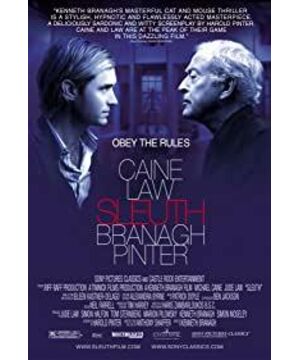From: Open Sesame (Zhong Bei) (Cat Slave)
"I pretended to be the detective to tease you and make you tremble. But you scared me to death. You really thought I was going to kill you. You? You passed out, it was a blank. I probably won the second of three. If I killed you...I would have to bury my body in the garden or something."
"It's exhausting. But you won by six points in the first game. So we're nowhere near even!"
"By the way, I spoke to Maggie. I told her all about you. She liked it."
"Like what?"
"I freaked you out. You wet your crotch. You passed out. She said to me: 'Do you mean really passed out?' I said: 'Dead, he scared to death It went off like a light.' She laughed so hard I thought she was going to die. By the way, she wants to come back to me."
"Really?"
"That's right."
"I know what she said about you . Is it true?"
"How?"
"She said: 'A weak heart can never win a beautiful woman's heart.'"
"Is this true?"
"Yes." ......
Such dialogue makes people feel I feel like I'm in a theater with a great theater play with great dialogue, but it's from a movie "Footprints" starring Judy Law and Michael Caine (Sleuth, 2007) . The script for the film was written by the famous dramatist Harold Pinter.
A handsome young man knocked on the door, and it was a gray-haired but charming old man, Andrew Wyke. An accomplished crime novelist, he has a mansion and a sweet wife. The young man who came to visit was named Milo Tedell, who claimed to be a second-rate actor who had only played inexperienced roles such as murderers and rapists, but he firmly believed that sooner or later he would have a real masterpiece.
The purpose of the young man's visit was to ask Andrew to sign the divorce agreement so that he could "let" his young wife out. Andrew told Milo that his wife was used to enjoying life and that the best way to make money for her was to steal a million-dollar diamond necklace from him and sell it. And Andrew can also be fully compensated. The next day, Milo arrived on schedule. Andrew pulled the gun behind him.
A few days later, a plainclothes man claiming to be a police officer came to Andrew's house to investigate the case. Andrew couldn't figure out how the plan he made had gone wrong. At the moment of anxiety, the plainclothes tore off the mask, and it was Milo who came!
Milo had no intention of retreating. In Andrew's mansion, the two played a game of "cat and mouse". In the back-and-forth witty confrontation, the two thoughtful and thoughtful men staged a good psychological battle in the airtight room.
When there are endless personal attacks and male provocative language elements permeating the entire space, I firmly believe that it must be a damn good work!
Even if this isn't a play, but a movie, there's a strong Pinter vibe throughout—closed spaces, an air of panic, a plot that relies on dialogue, and the uncertainty of how the plot unfolds.
The setting of "Footprints" is "a room" that Pinter is good at. In the house, the characters feel inexplicably frightened and afraid, but what are they afraid of? Pinter gave an ambiguous account. Like the plot in his first play, The Room (1957): an elderly woman lives in a room she believes is the best room in the house, and she refuses to know anything about it. About the downstairs basement. She said the basement was damp and filthy; the world outside was bitterly cold. In her warm and comfortable room, her safety is complete. However, this is of course not the case: the entry of an outsider upsets the balance of everything, his intrusion pierces the fantasy of her life. "Obviously, they're afraid of what's outside the room. Outside the room is a world that's stressing them out, it's scary... We're all in this situation, we're all in a room, and it's like this outside. A world . . . extremely mysterious and frightening, extremely curious and scary," Pinter said of "The Room."
In "Footprints," Milo's arrival disrupts Andrew's life. Although the "reason" for the two men's fight is Andrew's wife, in fact this mysterious woman is never seen in the film. "She" is just any reason that can be called a reason, the purpose of which is to break open the enclosed space and pierce the semblance of serenity on the surface. For "Room", "she" brings in strange outsiders; for "Footprint", "she" brings Milo's visit. In Pinter's story, human fear is no longer an abstract concept, no longer a surreal magic slideshow, but a real, ordinary, accepted, everyday thing.
However, the artistic charm of Pinter's works is by no means the focus of these ordinary and realistic dialogues. The paradox of his artistic personality lies precisely in the fact that the characters and dialogues are very real. The effect is mysterious and full of uncertainty. The characters' inexplicable motives, ambiguous backgrounds, and dubious identities make this peculiar paradox possible and allow his works to stray from reality.
"We're still in love, like two lovesick beans."
"Some say your wife has a lover."
"She does, do you know him?"
"No, I've never met him. He's of Italian descent. He seems to be called Tan Doli."
"Mumbai Tan Doli?"
"That's right."
"You know? I've never met a thief before."
" Wonderful."
"What's your background?"
"Me?"
"You, Ireland, Connemara. Spanish blood, via Uganda. My grandparents were slaves. My mother was a dark-eyed, dark-skinned beauty. "
You grew up on breast milk?"
"Yes, like a baby."
Didn't Andrew's wife have an affair with Milo, and they were still in love? Where the hell did Milo come from, Italy? Ireland? He tricked Andrew with his superb acting skills. Is he an ordinary second-rate actor?
Pinter didn't play with mysteries, fool the audience, and didn't mean to keep the audience from the necessary facts and information about the characters in the play. After all, the way to get cheap suspense through trickery is really not something Pinter would like!
In an interview, Pinter said: "The definite dramatic form that was widely used in the 20th century was... deception. The playwright assumes that he has a lot of knowledge of all his characters, who explain themselves to the audience. In fact , what they do most of the time is nothing more than succumbing to the author's own ideology. In the process of moving forward, they do not create themselves, they are placed on the stage with only one purpose, that is to have a point of view The author's endorsement that I want to convey. In my play, the curtain is raised, and two people are sitting in the room. I don't know them, just like I don't know you sitting at this table. The world is full of surprises… …Do we often know what someone is thinking, or who the person is, or what makes him what he is?”
In literature, Pinter disapproves of the omniscient and omnipotent attitude of his characters. With the most sincere, uncompromising radicalism, he categorically rejected it. In his view, "all-knowing and omnipotent" is nothing but an extremely arrogant gesture displayed by the writer. What he utterly abandons is the explanation and exposition so often found in stories. And this description is likely to be about the main characters who should be explained 10 minutes after the story takes place, as well as their origins, backgrounds, and motivations.
Someone asked me, where did Andrew pull the trigger at Milo and fire the first shot, where did the so-called blank bullet go? If the kit is special, I replied: "Is this question important?" The
article has been published, download link:
http://www.zcom.com/mag/mingxing/kaila/9927/
http://online.mag.zcom .com/full/9927/29.htm
View more about Sleuth reviews










